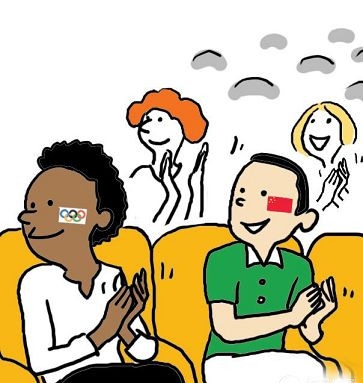Applause is a sign of appreciation after a good performance. Right? Actually, a new study finds that how enthusiastically you clap can be strongly influenced by the volume and frequency of the audience clapping around you.
掌聲是對一場精彩表演的贊美。對嗎?實際上,一項研究證明你鼓掌的熱情程度會深受你周圍觀眾掌聲的數量和頻率的影響。
To test how applauding behavior spreads in groups, researchers filmed six different sets of university students who were told to clap after listening to an academic lecture.
為了驗證鼓掌行為是如何在人群中傳遞的,研究人員拍攝了不同組的大學生,并要求他們在聽完學術講座后鼓掌。

The videos showed that people were strongly swayed by other audience members, or even by just one particularly influential clapper. Applause incidents averaged 9-15 claps per person, but would swell to as many as 30 claps solely based on an individual applause leader. The spasm stopped in much the same way: when one person ceased clapping it triggered a larger group dynamic.
視頻顯示,人們總是深受其他成員的影響,有時甚至只受到某一特殊鼓掌者的影響。在鼓掌過程中,平均每人鼓掌9至15次,但如果有個人領先鼓掌,那么平均每人鼓掌的次數將增加到30次。掌聲停下來的方式也類似:當這個人不再鼓掌時,那么便會觸動一大群觀眾的停止拍手。
The study is in the Journal of the Royal Society Interface and is part of a larger effort to understand social behavior and how it can spread within a group.
這項研究發表在《皇家學會界面雜志》上,是了解社會行為及其如何在群體傳播的另一項努力的一部分。
So the next time you see a dull performance, remember, the desire to hold back on clapping might be out of your hands.
因此下次你看了一場枯燥的表演時,記住你是無法左右自己不愿鼓掌的欲望的。












